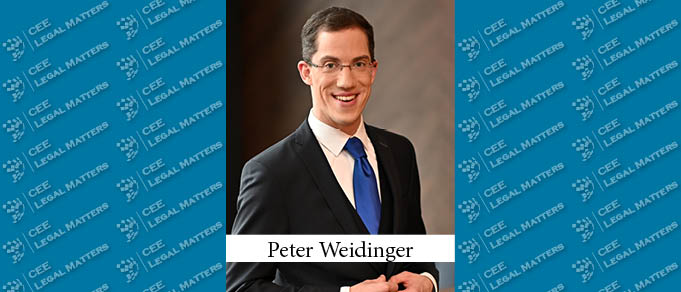Over the past year, Act Legal Hungary’s labor practice has been fueled by recent whistleblowing legislation, according to Partner Peter Weidinger, with ESG likely bringing forth additional work in the future.
CEELM: What work has kept you busy in the last 12 months?
Weidinger: We've been heavily involved in implementing whistleblowing measures for companies in compliance with Hungarian law. We assisted both large companies (with at least 250 employees) and smaller ones (with at least 50 employees) in setting up their systems before the respective deadlines in July and December 2023. While we couldn't serve as whistleblowing attorneys due to existing client relationships, we helped ensure compliance and find suitable whistleblowing suppliers or set up internal systems. We also reviewed international companies' existing whistleblowing platforms to ensure compliance with Hungarian regulations. This often led us to work on broader legal projects with new clients who initially approached us for whistleblowing compliance.
Beyond whistleblowing, a significant project involved the closure of Salamander's Hungarian business. This joint effort involved Act Legal teams from the Czech Republic, Germany, and Hungary. Our team handled the Hungarian closure process. The German headquarters decided to shut down the Hungarian operations, which included over 70 employees and 10+ shops across various cities. We collaborated with both the German company and the Hungarian management team. Ultimately, the Hungarian business was sold to an Austrian investor group, with a smooth transition for all parties. We continued working with the Austrian investors, although the operation eventually went into liquidation.
CEELM: What's been driving that pipeline of work?
Weidinger: The whistleblowing act in Hungary has definitely been a significant driver of work. However, we also actively participate in building brand awareness through various channels. This includes hosting business breakfasts, participating in workshops and conferences, and being a member of relevant business clubs. Additionally, satisfied clients recommending us to their business partners play a crucial role in generating new leads.
The overall economic situation, particularly in the EU and Germany, also impacts our work. The conflict in Ukraine and high inflation in Hungary (although it has decreased from 20% last year to a more manageable 3% currently) have affected the economy. Industries like construction have faced project closures due to these economic pressures. While we haven't seen a direct impact on our labor practice yet, other practice areas have experienced increased client cautiousness.
CEELM: What's your outlook for the next 12 months? Do you expect it to increase, decrease, or stay the same, and why?
Weidinger: Looking ahead to 2024, ESG is the prime area of focus. The Hungarian ESG Act came into effect in January, and we're gearing up to help clients achieve ESG compliance. From a labor perspective, we're focusing on the “Social” and “Governance” aspects of ESG.
While many players in the ESG market concentrate on the environment pillar (providing scores and benchmarking), we offer a different approach. We help clients improve their ESG scores by developing necessary policies on diversity, sustainability, and other ESG-focused legal frameworks. We also co-hosted a major ESG conference in Budapest at the end of April to educate the market and clients. Many companies haven't felt the pressure yet as reporting isn't mandatory in 2024; however, larger players are already working on compliance. Greenwashing is a potential risk, so we aim to help clients find a balanced approach, ensuring legal compliance with internal policies and robust review procedures.
